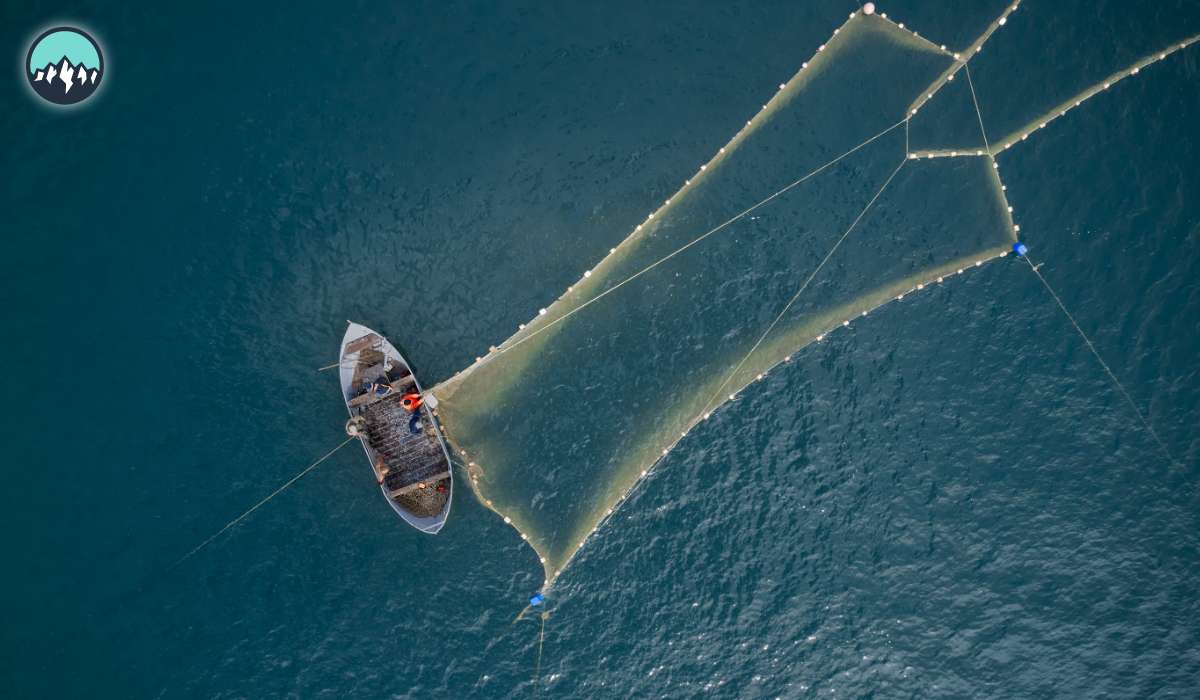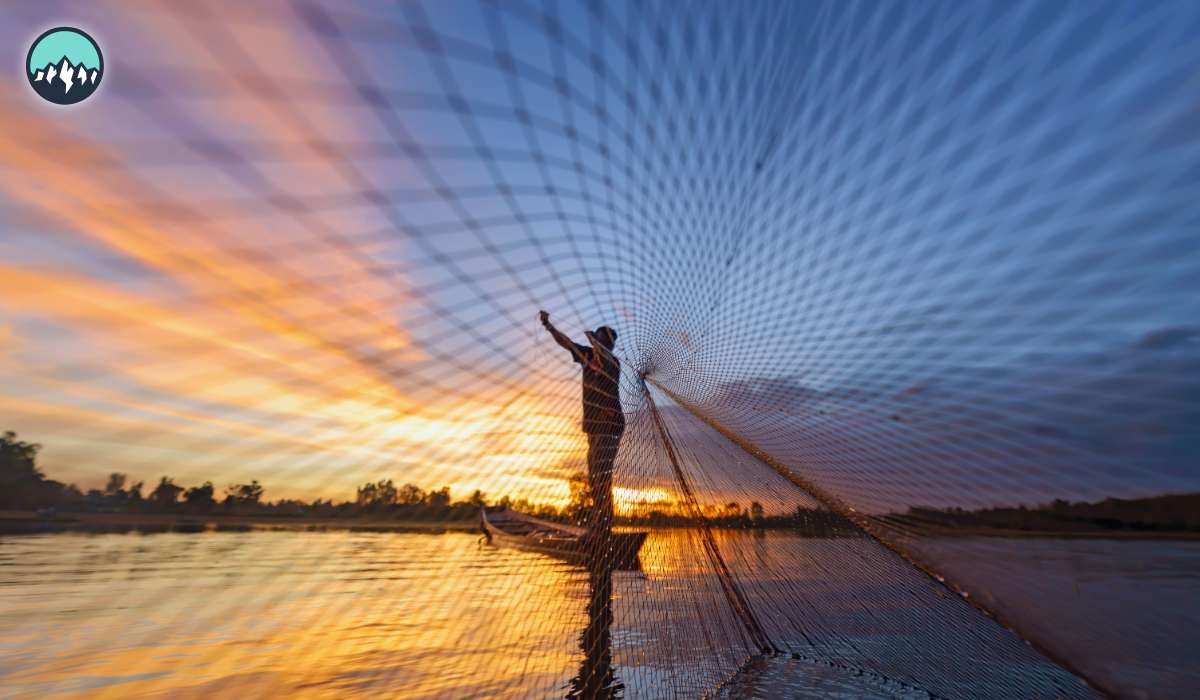Work in Canada as a Fisherman
14 Mar 2025

The long North Atlantic coast attracts many immigrant fishermen looking to work in Canada. However, transforming that passion into a career requires more than enthusiasm. If you want to work in Canada as a fisherman, you must be able to go through its various regulations, acquire specific certifications, and understand its immigration procedures. Whether you're a skilled foreign national fisherman or a new graduate looking for a start in the fishing industry, this guide will provide a valuable starting point if you want to work in Canada.
Are Fishermen Needed in Canada?

Yes. The Canadian fishing industry is vital to its economy, particularly in coastal communities. It contributes significantly to food security, export revenue, and local employment. However, the industry faces challenges, including an aging workforce, fluctuating fish stocks, and evolving regulatory requirements.
According to Fisheries and Oceans Canada (DFO), the industry supports thousands of jobs directly and indirectly. Skilled fishermen in Canada are in demand, particularly those with experience in specific fisheries and vessel operations. The need for qualified individuals is further heightened by the industry's cyclical nature and the seasonal availability of certain species.
Aging Workforce
Like many skilled trades, the Canadian fishing industry is experiencing an aging workforce. Attracting and retaining younger workers is crucial for the sector’s long-term sustainability.
Regional Variations
The demand for fishermen varies significantly across Canada’s regions. Lobster, crab, and groundfish fisheries are major employers in Atlantic Canada. In British Columbia, salmon, herring, and shellfish fisheries are prominent. Inland fisheries in provinces like Manitoba and Saskatchewan also provide employment opportunities.
Sustainability and Technology
The industry increasingly focuses on sustainable fishing practices and technological advancements. Fishermen with expertise in modern fishing techniques, electronic navigation, and sustainable harvesting methods are highly sought after.
Aquaculture
The aquaculture sector, which involves farming fish and shellfish, is expanding in Canada. This sector requires skilled workers for fish husbandry, net pen maintenance, and processing.
Top In-demand Job Sectors for Fishermen in Canada
The Canadian fishing industry is diverse. It includes various sectors that require different skill sets and expertise. Below are some of the top in-demand job sectors for fishermen.
Commercial Fishing
Commercial fishing is the backbone of Canada’s fishing industry. This sector involves catching fish and other seafood for sale in domestic and international markets. Key species include lobster, crab, salmon, and halibut. Commercial fishermen in Canada often work on large vessels and may spend extended periods at sea.
Aquaculture
Aquaculture, or fish farming, is a rapidly growing sector in Canada. It involves raising fish, shellfish, and other aquatic organisms in controlled environments. Aquaculture jobs range from hatchery technicians to farm managers and require knowledge of biology, water quality management, and feeding practices.
Processing and Packaging
Once caught or harvested, fish must be processed and packaged for distribution. This sector employs fish cutters, packers, and quality control inspectors. Many processing plants are located in coastal communities and provide year-round employment opportunities.
Sport and Recreational Fishing
Canada is a popular destination for sport fishing, attracting tourists worldwide. This sector includes jobs such as fishing guides, charter boat operators, and lodge staff. While these roles are often seasonal, they can be lucrative and rewarding.
Research and Conservation
With an increasing focus on sustainable fishing practices, there is a growing demand for research and conservation professionals. Jobs in this sector include fisheries biologists, environmental consultants, and conservation officers. These roles often require specialized education and training.
How Can I Work in Canada as a Fisherman

Working as a fisherman in Canada can be a rewarding career, but it requires preparation, training, and understanding of the industry’s requirements. Here’s a step-by-step guide to help you become a fisherman in Canada.
Step 1: Understand the Requirements
The foundation of a legal fishing career in Canada is obtaining the necessary licenses and certifications. These requirements are not the same throughout, varying significantly by province or territory, the specific fishery, and the type of vessel employed. DFO plays a central role in federal regulations, while provincial and territorial authorities oversee local fisheries.
A commercial fishing license is the cornerstone, granting the right to harvest specific species within designated areas. Supplementing this are vessel operator certifications, such as the Small Vessel Operator Proficiency (SVOP), ensuring vessel handling and navigation competency.
Marine Emergency Duties (MED) certifications are equally vital, equipping fishermen with the knowledge to respond effectively to onboard emergencies. Researching and contacting the relevant provincial/territorial fisheries department or DFO is indispensable to ascertain the precise licensing requirements for your intended fishing activities.
Step 2:Obtain the Necessary Skills and Qualifications
Success in the Canadian fishing industry depends on diverse skills and qualifications. Seamanship, including navigation and vessel handling, forms the profession's core. Expertise in net handling, fish processing, and gear maintenance is equally vital. Safety procedures, including first aid and emergency response, are paramount for safe operations.
Prior fishing experience is highly valued, particularly for skilled positions. Relevant certifications, such as first aid, marine first aid, and mechanical skills, enhance employability. Strong physical fitness is vital, given the physically demanding nature of the work. Fishermen in Canada often endure long hours in challenging weather conditions, which shows resilience and adaptability.
Step 3: Find a Suitable Immigration Pathway
Canada's fishing industry, like many others, faces labor shortages, creating opportunities for qualified foreign workers. However, immigration procedures are complex and require meticulous attention to detail. A valid work permit is mandatory for foreign nationals seeking employment as fishermen.
Canadian employers must often secure a Labour Market Impact Assessment (LMIA) from Employment and Social Development Canada (ESDC). The LMIA evaluates the impact of hiring a foreign worker on the Canadian labor market, ensuring that no qualified Canadian citizens or permanent residents are available.
Certain immigration programs, such as the Atlantic Immigration Program (AIP) and Provincial Nominee Programs (PNPs), offer streamlined pathways for skilled workers in specific regions. The AIP, for instance, is designed to address labor needs in Atlantic Canada, including the fishing sector. PNPs allow provinces and territories to nominate individuals who meet their specific labor market needs.
Step 4: Understand the Reality of Fishing in Canada
Before committing to a fishing career, it is crucial to understand the inherent demands of the profession. Physical fitness is non-negotiable, as the work involves heavy lifting, prolonged standing, and exposure to harsh weather conditions. Specific certifications, such as MED, Fishing Master’s license, and SVOP, are often prerequisites for various roles.
Experience, while not always mandatory for entry-level positions, is highly valued for advancement. Gaining practical experience through apprenticeships or working on smaller vessels can significantly enhance career prospects.
Step 5: Improve your Training and Education For Fishing in Canada
Formal training and education can provide a solid foundation for a fishing career. Several Canadian colleges and training institutions offer programs related to fishing and aquaculture. These programs cover various topics, including navigation, safety, fish handling, and marine technology.
Institutions like the Maritime College of Forest Technology, the Fisheries and Marine Institute of Memorial University, and Vancouver Island University offer specialized programs that equip students with the necessary skills and knowledge.
Step 6: Prepare for the Lifestyle
A career in fishing demands a significant lifestyle adjustment. Long hours, extended periods away from home, and exposure to challenging weather conditions are inherent aspects of the profession. Mental and physical preparedness are essential for going through these challenges. Understanding the seasonal nature of many fisheries and the potential for fluctuating income is also vital.
How Can I Find Jobs in Canada as a Fisherman

Finding a job as a fisherman in Canada requires a proactive approach. Here are some strategies to help you secure employment in this field.
Use Online Job Portals
Several online platforms specialize in job postings for the fishing industry. Websites like Fish Work, Indeed, and Workopolis often list openings for fishermen, processors, and related roles.
Contact Fishing Companies Directly
Many fishing companies prefer to hire directly rather than through job boards. Research companies in your desired location and contact them with your resume and a cover letter. Some of the largest fishing companies in Canada include Clearwater Seafoods, High Liner Foods, and Ocean Choice International.
Join Industry Associations
Industry associations like the Canadian Council of Professional Fish Harvesters (CCPFH) and the Fisheries Council of Canada (FCC) provide resources and networking opportunities for aspiring fishermen. They often have job boards and can connect you with potential employers.
Attend Job Fairs and Trade Shows
Job fairs and trade shows are excellent opportunities to meet employers and learn about job openings. Events like the Seafood Expo North America and the Canadian Fisheries Expo often feature recruitment booths.
Use Social Media
Social media platforms like LinkedIn and Facebook can be valuable tools for job hunting. Join industry-specific groups and follow companies to stay updated on job postings and industry news.
Consider Seasonal Work
Many fishing jobs are seasonal, particularly in British Columbia, Newfoundland, and Labrador. Applying for seasonal work can be a great way to gain experience and build connections in the industry.
Work with Recruitment Agencies
Some recruitment agencies specialize in placing workers in the fishing and aquaculture sectors. These agencies can help match you with employers and guide you through the application process.
FAQs
Are There Any Support Services For Foreign Workers in the Fishing Industry?
Yes, there are support services, though they can vary regionally. These services can include assistance with immigration processes, finding housing, and accessing community resources. Industry associations and government programs, such as those through ESDC, often provide these support networks.
What Safety Certifications Are Required for Fishermen?
Required safety certifications vary but commonly include MED certifications. These certifications ensure fishermen are trained in emergency procedures, first aid, and survival techniques. Depending on the vessel and role, SVOP may also be required.

